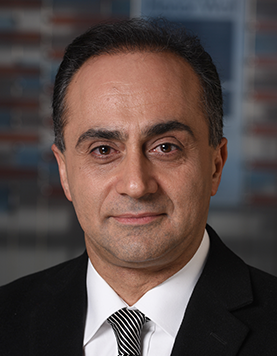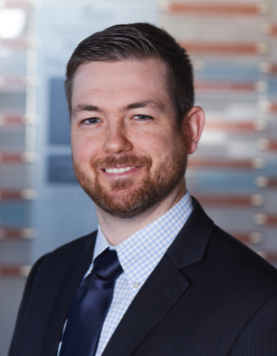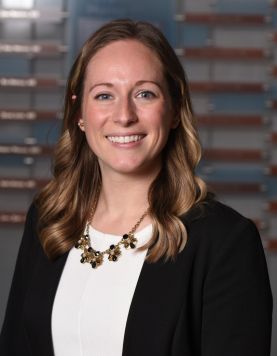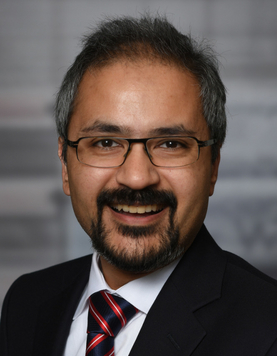bio
Dr. Lober is a board-certified neurosurgeon and director of the Living Biobank at Dayton Children's Hospital. Through Dayton Children’s affiliation with the Wright State University & Premier Health Neuroscience Institute, Dr. Lober is researching brain tumors in children, using advanced imaging and molecular techniques in search of a cure. This initiative is bridging the gap between pediatric neurosurgeons, pediatric oncologists, physicists, mathematicians, radiologists, pathologists, biochemists and many others within Dayton Children’s and the Neuroscience Institute.
Coming to Dayton Children’s from Lucile Packard Children’s Hospital in Palo Alto, California, Dr. Lober completed a fellowship in pediatric neurosurgery and pediatric neuro-oncology, a rare combination for a pediatric surgeon. He served his residency at Stanford Hospitals and Clinics in Stanford, California. He earned his medical degree and a PhD in Biomedical science at Georgia Regents University in Augusta, Georgia.
Dr. Lober is a member of the Scientific Committee for The Children's Brain Tumor Network, a collaborative, multi-institutional research program dedicated to the study and treatment of childhood brain tumors. CBTN includes some of the finest pediatric institutions in the world, and provides free and open access data to find a cure for pediatric brain cancer. Dayton Children's is one of 21 member institutions across five countries.
Dr. Lober is on the board of directors for the Children’s Brain Tumor Foundation (CBTF), a national organization dedicated to improving the treatment, quality of life, and long-term outlook for children and families affected by a brain or spinal cord tumor.
"It's a humbling thing when someone entrusts you with their child. It really feels like you are holding all of their hopes and dreams in your hands. I don't take that lightly at all."
Meet Dr. Lober
Learn more about Dr. Lober both inside and outside of work!
searching for a cure
Learn more about how Dr. Lober's research is helping to find treatment and cures for childhood brain tumors.
schedule an appointment
existing patients
If you have already seen a provider in the neurology clinic at Dayton Children’s and need to schedule a follow-up appointment, please log in to MyKidsChart to schedule directly with your provider or call 937-641-4000. If you do not have a MyKidsChart account click here.
new patients
If you are new to the Dayton Children’s neurosurgery clinic, use the online scheduling tool below to schedule an appointment. New patient appointments must be done in person. To schedule by phone call 937-641-4000.
education and training
- medical school: Medical College of Georgia
- internship: Stanford Hospitals and Clinics, Stanford, California
- residency: Neurosurgery - Stanford Hospitals and Clinics, Stanford, California
- fellowship: Pediatric Neuro-Oncology and Pediatric Neurosurgery - Stanford Hospitals and Clinics, Stanford, California
publications and presentations
Search full biography
- Quon JL, Han M, Kim LH, Koran ME, Chen LC, Lee EH, Wright J, Ramaswamy V, Lober RM, Taylor MD, Grant GA, Cheshier SH, Kestle JRW, Edwards MSB, Yeom KW. Artificial intelligence for automatic cerebral ventricle segmentation and volume calculation: a clinical tool for the evaluation of pediatric hydrocephalus. J Neurosurg Pediatr. 2020 Dec 1:1-8. doi: 10.3171/2020.6.PEDS20251. Epub ahead of print. PMID: 33260138.
- Petralia F, Tignor N, Reva B, Koptyra M, Chowdhury S, Rykunov D, Krek A, Ma W, Zhu Y, Ji J, Calinawan A, Whiteaker JR, Colaprico A, Stathias V, Omelchenko T, Song X, Raman P, Guo Y, Brown MA, Ivey RG, Szpyt J, Guha Thakurta S, Gritsenko MA, Weitz KK, Lopez G, Kalayci S, Gümüş ZH, Yoo S, da Veiga Leprevost F, Chang HY, Krug K, Katsnelson L, Wang Y, Kennedy JJ, Voytovich UJ, Zhao L, Gaonkar KS, Ennis BM, Zhang B, Baubet V, Tauhid L, Lilly JV, Mason JL, Farrow B, Young N, Leary S, Moon J, Petyuk VA, Nazarian J, Adappa ND, Palmer JN, Lober RM, Rivero-Hinojosa S, Wang LB, Wang JM, Broberg M, Chu RK, Moore RJ, Monroe ME, Zhao R, Smith RD, Zhu J, Robles AI, Mesri M, Boja E, Hiltke T, Rodriguez H, Zhang B, Schadt EE, Mani DR, Ding L, Iavarone A, Wiznerowicz M, Schürer S, Chen XS, Heath AP, Rokita JL, Nesvizhskii AI, Fenyö D, Rodland KD, Liu T, Gygi SP, Paulovich AG, Resnick AC, Storm PB, Rood BR, Wang P; Children’s Brain Tumor Network; Clinical Proteomic Tumor Analysis Consortium. Integrated Proteogenomic Characterization across Major Histological Types of Pediatric Brain Cancer. Cell. 2020 Nov 25:S0092-8674(20)31451-3. doi: 10.1016/j.cell.2020.10.044. Epub ahead of print. PMID: 33242424.
- Quon JL, Bala W, Chen LC, Wright J, Kim LH, Han M, Shpanskaya K, Lee EH, Tong E, Iv M, Seekins J, Lungren MP, Braun KRM, Poussaint TY, Laughlin S, Taylor MD, Lober RM, Vogel H, Fisher PG, Grant GA, Ramaswamy V, Vitanza NA, Ho CY, Edwards MSB, Cheshier SH, Yeom KW. Deep Learning for Pediatric Posterior Fossa Tumor Detection and Classification: A Multi-Institutional Study. AJNR Am J Neuroradiol. 2020 Sep;41(9):1718-1725. doi: 10.3174/ajnr.A6704. Epub 2020 Aug 13. PMID: 32816765; PMCID: PMC7583118.
- Fangusaro J, Witt O, Hernáiz Driever P, Bag AK, de Blank P, Kadom N, Kilburn L, Lober RM, Robison NJ, Fisher MJ, Packer RJ, Young Poussaint T, Papusha L, Avula S, Brandes AA, Bouffet E, Bowers D, Artemov A, Chintagumpala M, Zurakowski D, van den Bent M, Bison B, Yeom KW, Taal W, Warren KE. Response assessment in pediatric low-grade glioma: recommendations from the Response Assessment in Pediatric Neuro-Oncology (RAPNO) working group. Lancet Oncol. 2020 Jun;21(6):e305-e316. doi: 10.1016/S1470-2045(20)30064-4. Erratum in: Lancet Oncol. 2020 Dec;21(12):e553. PMID: 32502457.
- Shpanskaya K, Quon JL, Lober RM, Nair S, Johnson E, Cheshier SH, Edwards MSB, Grant GA, Yeom KW. Diffusion tensor magnetic resonance imaging of the optic nerves in pediatric hydrocephalus. Neurosurg Focus. 2019 Dec 1;47(6):E16. doi: 10.3171/2019.9.FOCUS19619. PMID: 31786546.
- Waker CA, Lober RM. Brain Tumors of Glial Origin. Adv Exp Med Biol. 2019;1190:281-297. doi: 10.1007/978-981-32-9636-7_18. PMID: 31760651.
- Quon JL, Kim LH, Lober RM, Maleki M, Steinberg GK, Yeom KW. Arterial spin- labeling cerebral perfusion changes after revascularization surgery in pediatric moyamoya disease and syndrome. J Neurosurg Pediatr. 2019 Feb 8;23(4):486-492. doi: 10.3171/2018.11.PEDS18498. PMID: 30738390.
- Chen R, Keoni C, Waker CA, Lober RM, Chen YH, Gutmann DH. KIAA1549-BRAF Expression Establishes a Permissive Tumor Microenvironment Through NFκB-Mediated CCL2 Production. Neoplasia. 2019 Jan;21(1):52-60. doi: 10.1016/j.neo.2018.11.007. Epub 2018 Nov 30. Erratum in: Neoplasia. 2020 Mar;22(3):e1. PMID: 30504064; PMCID: PMC6277251
awards, honors and organizations
- Joint Service Achievement Medals in the United States Army
- Merck Manual Award for Perfect Grade Point Average in Medical School
- Membership in the Alpha Omega Alpha Honor Medical Society
- Award for Compassionate Care from the Lucile Packard Children's Hospital Oncology Palliative Care Committee
- Research Awards from the American Society for Cell Biology, the Biophysical Society, and the San Francisco Neurological Society
- Research Funding from the American Heart Association and the National Institutes of Health
- Dayton Magazine - Dayton Best Docs 2023
get to know me
I chose my specialty because...
in neurosurgery, we have a unique opportunity to restore function when it is lost because of a brain or spinal cord problem. Nothing feels better to me than improving a child’s speech, strength or ability to walk after they have been affected by neurologic illness. In this field, we are on the verge of many exciting medical discoveries that promise to improve the lives of patients in ways that we could not have previously imagined.
I chose to work at Dayton Children's because...
at this hospital there is a unique opportunity to provide highly personalized care in a more efficient and cost-effective manner compared to large academic centers. Patients receive world-class care from experts recruited from top centers, who wished to have a smaller practice that allows a close relationship between doctors, patients and their families. We are pioneering the most advanced clinical neuroimaging technologies available in Ohio, including specialized vascular and spinal imaging techniques that are being developed through a joint collaboration with Stanford University.
Dayton Children's is special because...
the people that work here are a family. They are experts that could have chosen to work anywhere and they stayed at Dayton Children’s because they believe in what we can accomplish here.
ratings and reviews
Question Rating Breakdown
Distribution
Comments
Dr. Lober was the most gracious, kind, caring, and empathetic doctor we have ever come in contact at Dayton Children's. He explained everything to us. Even though the things that we were hearing were shocking and scary for us, he assured us and walked through that process with us. We are so thankful to have met him. and to have been treated by him. And without Dr. Lober, I don't know that we could have made it through this process, and we are forever thankful for him, and we will forever be grateful for what he's done for our son. Thank you.
Couldn't rate Dr Lober and the team highly enough. Extremely capable, caring and compassionate.
Dr. Lober is very compassionate, understanding, caring. He goes above and beyond the scope of practice. He makes sure that his family or my family is secured and knowledgeable of what is going on with the patient. And also, he gives us the comfort ability to call him at any time. in any situation where we are scared, nervous, or don't know what to do with our children, or in case something dramatic happens, that he gives us the ability to reach out to him and let him know. He always goes above and beyond for my child, my daughter, which is his patient, and we love him dearly.
Load more testimonials...













15 comments